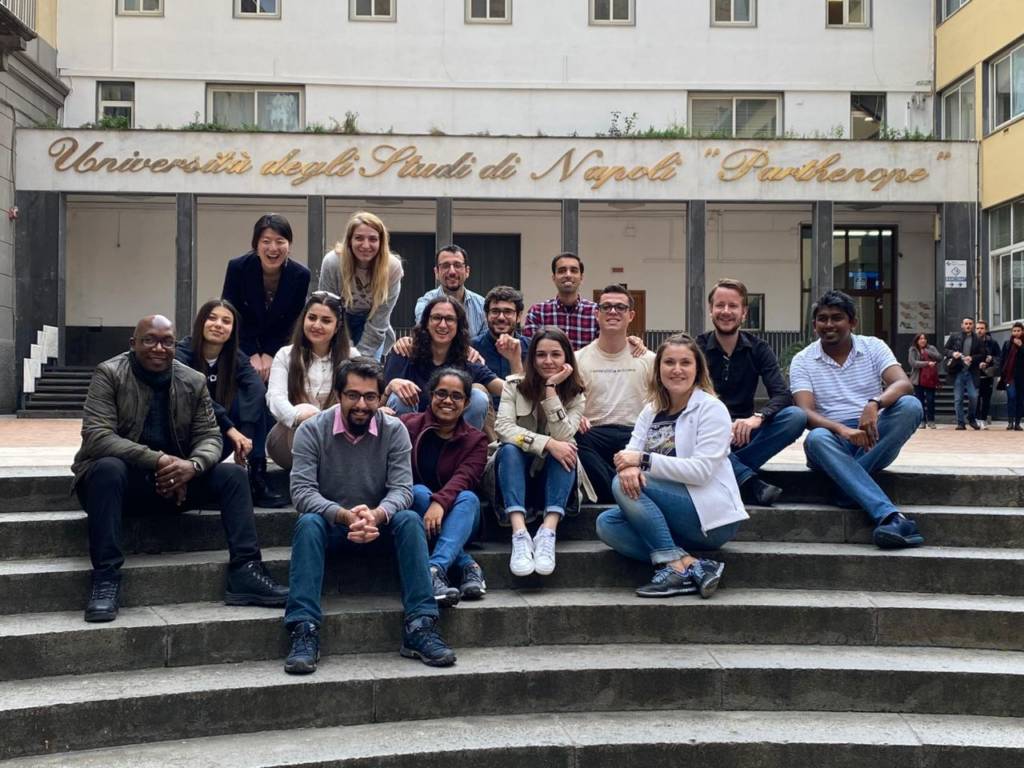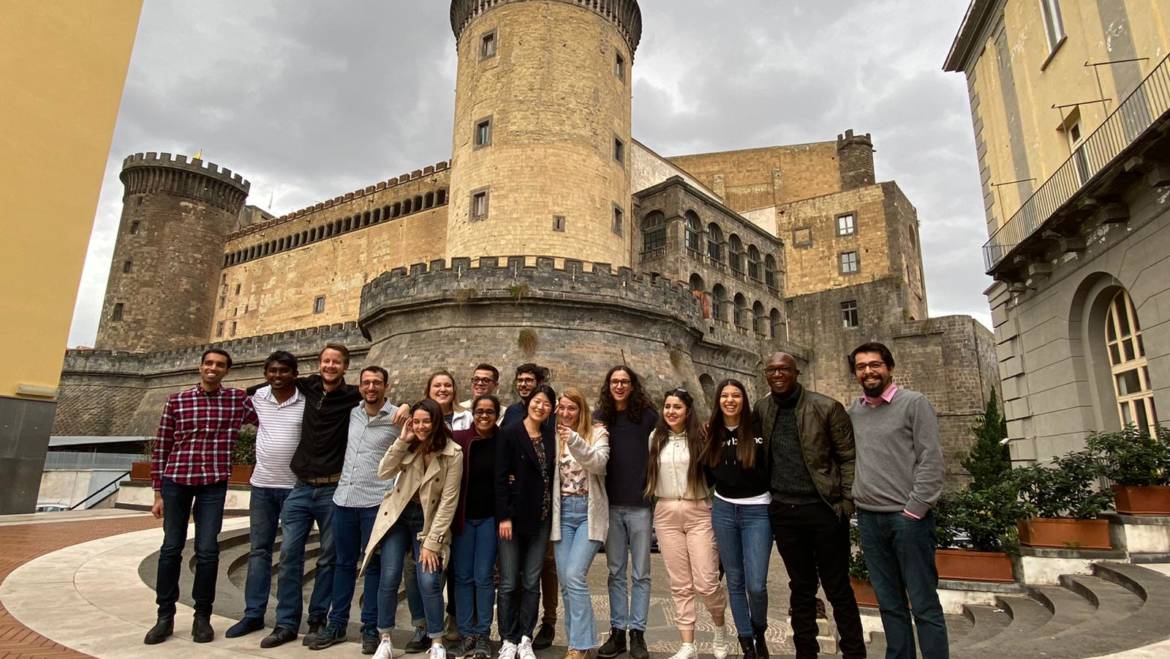The first ReTraCE ESRs Team Retreat took place at the University Parthenope in Naples, from the 16th to the 18th of December. This was a self-organised event that became an opportunity for us to work together offline, receive additional training, strengthen our ties as researchers through team-building.
Arrangements started during Summer 2019, as we realised that, as young researchers, we needed to have a space to work together, to create confidence between us for making our group-research more resilient and to enhance soft skills which might contribute to our tasks and to our future employability.
A democratic process was adopted in order to decide on the agenda, the distribution of activities, and even the location of the retreat. Every single decision was discussed, voted, and open to debate. This made the organization of the event more time consuming, but more plural and informed by everybody’s preferences.
Also, we had some time for some final seminars. Dr. Sandrine Soubes, from Tesselle Development, provided an outstanding coverage of networking skills and the use of social networks for academic purposes. With her support, we learned how to strategically network in order to connect with academics and new potential partners, in order to improve our work. This networking can be helpful for us to find relevant feedback to our research, to find partners for new academic projects, or to build a professional network for future stages of our professional life. Also, we had the chance to get training on how to strategically use social networks to disseminate our academic work, to discuss and engage and to use them to find relevant information. Some further thoughts on this were shared by Elina Ketikidi (from South East European Research Centre).
Dr. Giacomo D’Alisa, from the Centre for Social studies of the University of Coimbra, gave a talk on the recent waste crisis which affected the Campania Region. He explained to us the extent of this crisis, its political implications and the complex relationships between environmental policies, waste management, and economic growth.

As a final remark, this team retreat, although it was organized by the ESRs, could not have been possible without the help of Prof. Andrea Genovese and Patrizia Baldi, as they supported us all the time to find and to contact all the speakers, to secure a location, and to get all the resources needed to make this event possible, to Dr. Giovanna Apice, who found the venue and provided continuous support during the retreat, and the fruitful collaboration and conversations with local UPN colleagues, Remo Santagata and Serena Kaiser.
These were three very productive days, which provided us with new skills as well as a cohesion among us that will support our collaborative work towards the objectives of the ReTraCE project.

